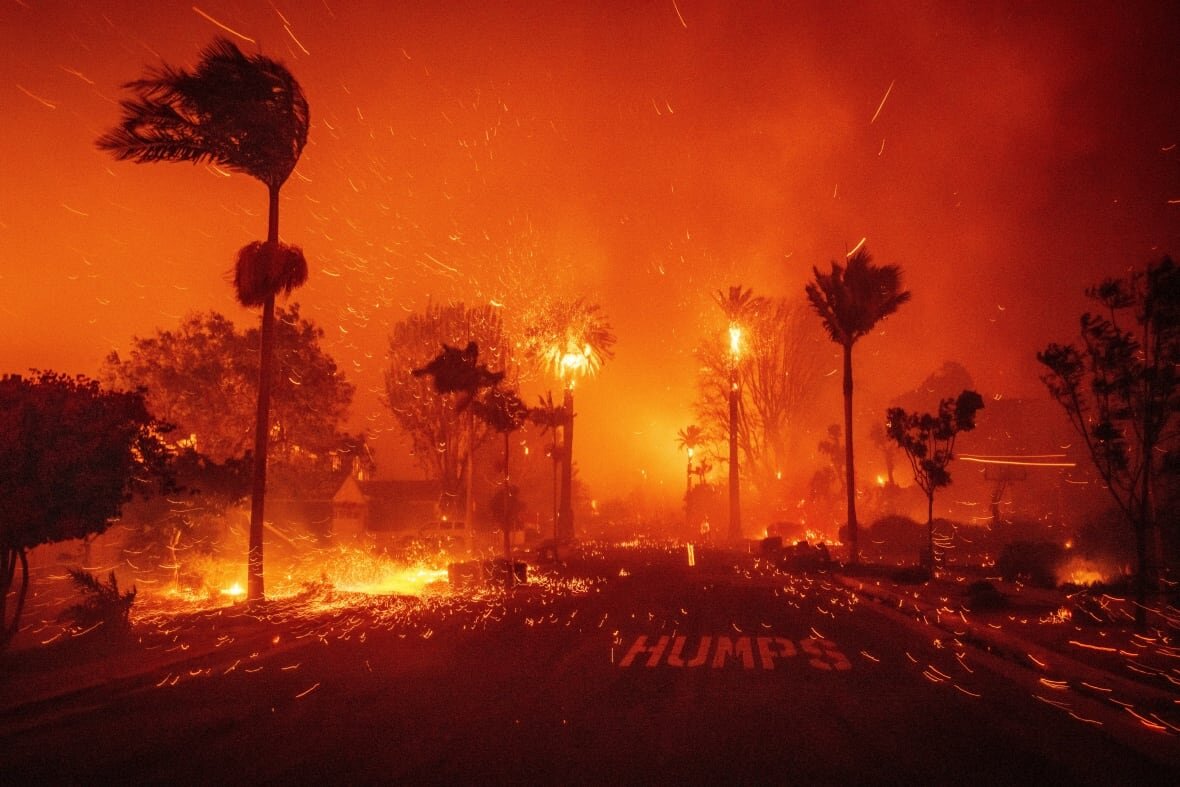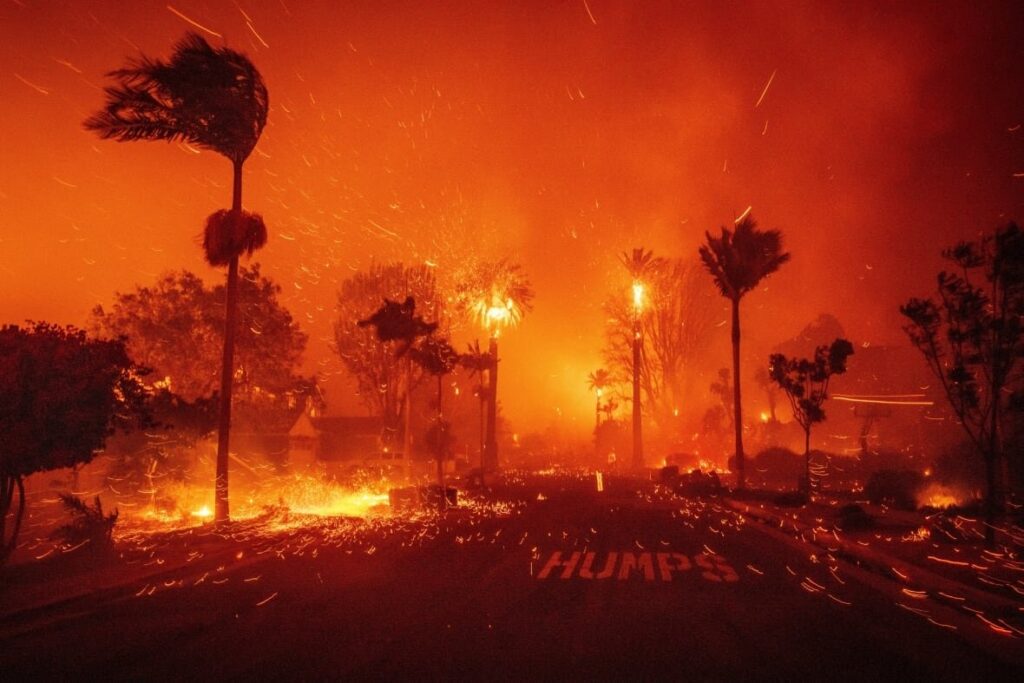
The city of Los Angeles, California, has been burning uncontrollably for several days at the beginning of the cold and winter season, leaving thousands of people homeless and causing considerable property damage. US media announced that at least 11 people were killed in the disaster, and that the death toll could rise further.
So far, efforts to contain five wildfires from the Pacific Coast to Pasadena have failed. The fire, which is said to be caused by a power line issue, is even expected to continue for the next few days. At the same time, ABC News announced that the government had ordered more than 180,000 residents in the region to vacate their homes, and 400 firefighters were called in to fight fires in dangerous areas of the region. He added that
The fire spread and the damage increased.
The current fire has spread over more than 200,000 hectares of forest, residential areas and urban infrastructure. The destruction of hundreds of homes is only part of the damage caused by the disaster.
AccuWeather’s initial forecast estimated the cost of these fires to be between $135 billion and $150 billion. These fires ravaged areas where some of America’s most expensive real estate is located.
The insurance industry has also been significantly affected. Analysts predict insured property losses from these fires will exceed $8 billion.
The wind-driven inferno caused one of the costliest wildfire disasters in modern American history, according to the report.
Additionally, some experts cite indirect costs such as decreased property values, psychological and social impacts on residents, and increased insurance premiums. Critical media views these numbers as a sign of government inefficiency in fire prevention and management, and calls for more attention to rebuilding infrastructure to cope with climate change and the crisis.
Natural disaster or management inefficiency? / Investigation of the cause of the incident
The current fires in Los Angeles are considered one of California’s most serious natural disasters in recent years, causing irreversible damage.
These fires, which spread with unprecedented speed, not only destroyed natural resources, but also exposed serious weaknesses in the U.S. government’s emergency management and environmental policies.
Mismanagement of natural resources and growing crisis
One of the main factors contributing to the spread of fires is the mismanagement of natural resources and forests. The US government has been cutting its forest management budget in recent years. These budget cuts have caused forests to accumulate flammable materials such as dead branches and leaves.
Additionally, the lack of new technology and lack of specialized staff to monitor forest conditions prevented the crisis from being identified and controlled in its early stages. These weaknesses, along with climate change, are leading to an increase in the intensity and extent of fires.
Inefficient infrastructure and slow government response
Another major problem with this disaster is the inefficient infrastructure to deal with the crisis. Lack of firefighting equipment, lack of access to sufficient water resources, and limited personnel were among the factors that made it difficult to suppress the fire.
Additionally, the slow state and federal response to the crisis expanded the scope of damages. Although early warnings of the fire outbreak were issued, the government delayed sending relief supplies and necessary equipment. This delay not only increased economic costs but also put the lives of thousands of people at risk.
climate change. Factors ignored in policy making
Climate change is one of the main factors contributing to the increase in the intensity and number of fires in California, yet remains ignored in U.S. government policymaking. Rising temperatures, decreasing precipitation, and frequent droughts are creating ideal conditions for wildfires to start.
Despite this scientific evidence, the U.S. government continues to support polluting industries and cut environmental budgets instead of adopting sustainable policies to reduce the effects of climate change. This approach not only exacerbates the natural crisis but also creates a more dangerous future for people and the environment.
The impact of the current crisis on the Trump administration on the eve of its inauguration
President-elect Donald Trump, who is scheduled to re-enter the White House just days after the inauguration (January 20), blamed California Governor Gavin Newsom for the forest fires. In a post on the social media platform Truth, President Trump criticized California’s governor for refusing to sign the Water Reclamation Proclamation. The declaration allowed millions of gallons of water to flow into parts of California each day.
Regarding the impact of the crisis on President Trump and his administration, we must not forget that the massive fire in Los Angeles and its inefficient management will have a negative impact on the Trump administration. The crisis has once again highlighted the weaknesses of the government’s environmental policies, particularly its denial of climate change and cuts to funding related to natural resource management.
Throughout his presidency, Trump has repeatedly downplayed climate change and prioritized supporting polluting industries. On the international stage, the United States was withdrawn from the Paris Agreement. His approach at the time was met with widespread criticism from experts, the media, and even some local officials in California. In previous wildfire incidents, President Trump has sparked a wave of discontent by blaming forest management instead of offering practical solutions.
The crisis not only had a negative impact on the government’s popularity, but also increased political pressure to reform climate policy and review the crisis budget. Critics accused the government of neglecting infrastructure to deal with the crisis and prioritizing short-term economic gains.
In summary, it is clear that the terrible fires in Los Angeles are not just a natural crisis, but the result of structural and managerial weaknesses.
MP/6343430


